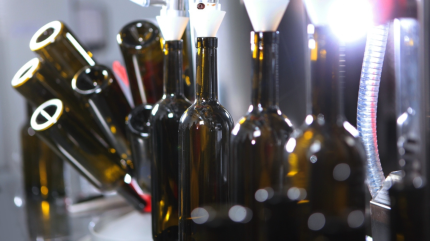
More than 80 wine and spirits businesses have asked the UK government to delay implementation of the Extended Producer Responsibility (EPR) scheme.
The Department for Environment, Food and Rural Affairs (Defra) released an “illustrative” fee base for the EPR initiative earlier this year.
Under the scheme, which is coming into play on 1 January, producers must report how much packaging they put into the market and pay associated rates per tonnage.
In a joint letter sent to government ministers, producers represented by the UK Wine and Spirits Trade Association (WSTA) expressed their concerns over the “unreasonable” scheme, which they believe is not ready to be implemented.
So far, the government has calculated the fees for eight packaging categories, ranging from lower, to intermediate and higher costs.
As of 30 September, the higher end of the illustrative base fees ranges from £605 ($784) per tonne of aluminium and £565 per tonne of fibre-based composites, to £250 per tonne of paper and card, £520 per tonne of plastic and £215 per tonne of glass.
At the lower end, estimated base fees range from £110 per tonne of glass to £360 per tonne of plastic.
Defra says it calculates the estimated fees “by dividing local authority packaging waste management costs for household packaging waste by the total amount of household packaging placed on the market”.
The final fees are not expected to be released until after 1 April but the WSTA said the costs are likely to “not be known until summer 2025”, making it “impossible” for producers “to estimate the cost to businesses and ultimately consumers”.
The trade body argued that the lack of clear guidelines prevent businesses from setting out pricing plans and deciding how much of the new costs will be passed onto customers, or whether they need to tweak pricing with retailers.
As the guidelines stand, SMEs and importers are likely to be impacted the most by the “ensuing crisis”, the WSTA said, as they “tend to hold lower cash reserves and have limited access to financing”.
It also said that while producers already pay charges for business and hospitality waste packaging “through backhaul and direct contracts with waste collectors,” as well as the PRN (packaging recycling note), the new scheme they “will end up paying twice”.
“There is a ‘non-household’ exemption process, but Defra’s new rules do not work, and the vast majority of bottles sold in hospitality will pay EPR fees, completely unfairly. Defra are aware of their mistake but have admitted the issue would not be prioritised”, WSTA’s statement read.
The group stressed that the lack of a scheme administrator to manage the EPR initiative was also worrying.
Commenting on the news, WSTA chief executive Miles Beale said that “a further delay is required to make sure the costs are realistic and known in advance”.
He added: “Wine and spirit businesses are working towards using less packaging and making it more recyclable, but the scheme currently set out is unfair and unfit for purpose. A delay would mean industry and Defra could work together to find a fairer, clearer and more sustainable resolution.”
Simon Doyle, general manager of Vina Concha y Toro’s European region, added: “Whilst the policy objectives may be clear, the process of implementation is not. Producers are to be responsible for collecting another tax on behalf of government without certainty on what these taxes will be, how we should collect them or account for them.
“It is critical that Defra and all involved in managing EPR listen to the legitimate concerns of the wine industry and take stock of how much more effective implementation could be if due time were given to work collaboratively to find a sustainable and manageable way forward.
“Alongside duty reform, this new government couldn’t have a clearer opportunity to put into practice its claims of listening and wanting to remove bureaucratic barriers to business”.


